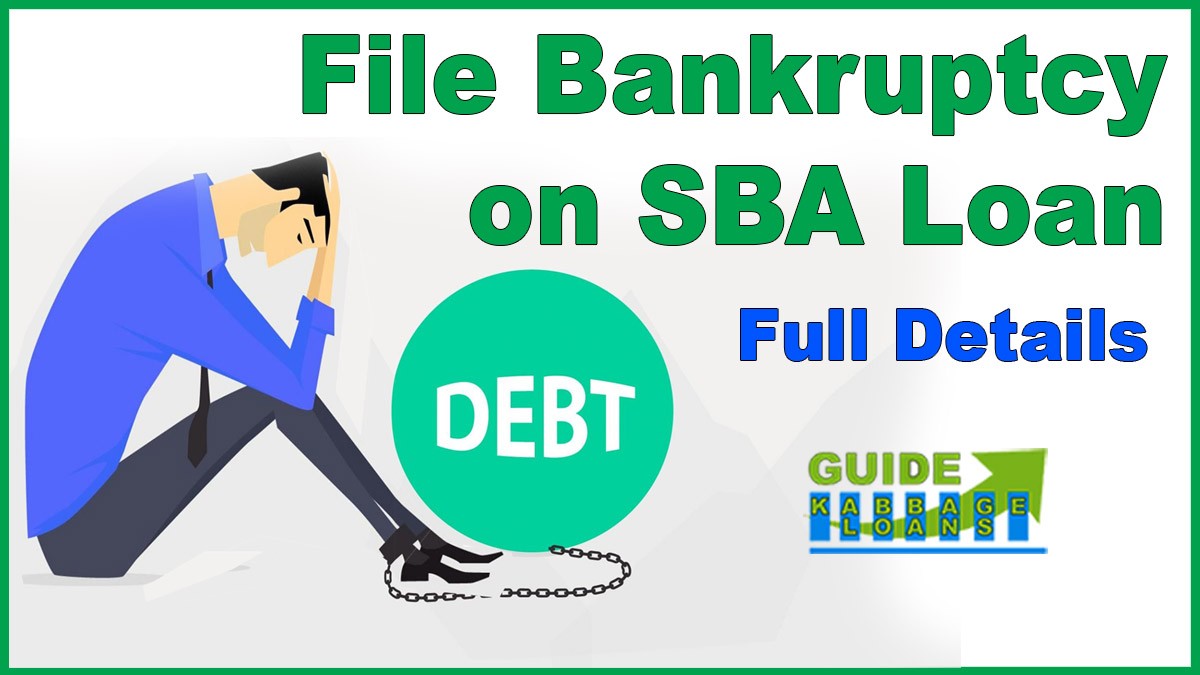As a business owner, navigating the murky waters of finance can often feel like an endless series of obstacles. One particularly daunting question that arises for many entrepreneurs is, “Can you file bankruptcy on an SBA loan?” This inquiry doesn’t merely reflect financial stress; it also signifies the precarious balance between ambition and practicality in the world of small business. Let’s peel back the layers of this complex issue, exploring the implications of bankruptcy as it pertains to SBA loans, your options, and the critical factors that come into play.
To begin with, understanding what the Small Business Administration (SBA) is pivotal. The SBA offers various loan programs designed to assist small businesses in securing funding that conventional banks might deem too risky. These loans are often seen as lifelines for entrepreneurs hoping to turn their dreams into tangible realities, enabling them to purchase equipment, hire staff, or expand operations. But what happens when financial tides turn against you, and the prospect of bankruptcy looms over your business?
When addressing the possibility of discharging an SBA loan in bankruptcy, it’s essential to distinguish between the different chapters of bankruptcy available under U.S. law. Chapter 7 and Chapter 13 are the most common paths for individuals and businesses. Chapter 7, known as liquidation bankruptcy, enables debtors to wipe out unsecured debts, but secured debts—like mortgages or car loans—are not so easily dismissed. On the other hand, Chapter 13 is designed for individuals with a regular income who wish to pay off debts over time while keeping their assets.
The reality is that the government-backed nature of SBA loans complicates matters significantly. Because these loans are often secured by government guarantees, they are treated differently than conventional unsecured debts. To put it succinctly, declaring bankruptcy does not automatically release a borrower from repayment obligations related to SBA loans. This distinction can be a bitter pill to swallow for many who hoped that bankruptcy might furnish a fresh start.
So, can you file for bankruptcy on an SBA loan? The short answer is yes, you can file for bankruptcy, but the outcome can be more convoluted than simply discharging the debt. In cases where an SBA loan is involved, the bankruptcy process may treat it as a secured debt, meaning that creditors have the right to seek repayment through the sale of your business assets. This is particularly crucial if you’ve utilized collateral to secure the loan because that collateral is likely at risk during bankruptcy proceedings.
Moreover, accurate documentation is key. Filing for bankruptcy requires listing all debts, which includes your SBA loan. Carelessly omitting this can lead to complications, potentially creating opportunities for creditors to challenge the bankruptcy discharge. Transparency in this process, as daunting as it may be, ensures a smoother transition through the legalities of bankruptcy.
That said, there are specific circumstances under which an SBA loan might be discharged in bankruptcy. For instance, if you can substantiate that you neither possess the capacity to repay the debt nor have valuable assets to liquidate, you might find solace within the protections of Chapter 7. The notion of “undue hardship,” a legal standard often applied in these situations, must be considered closely. It encompasses factors like your current income, reasonable living expenses, and your potential to make payments in the future.
In contrast, if you pursue a Chapter 13 bankruptcy, you could devise a repayment plan, restructuring your SBA debt over several years. This route offers the potential to retain ownership of your business and its assets while making manageable payments to creditors. It presents an alternative strategy to navigate the financial burden while potentially salvaging your entrepreneurial endeavors.
It’s also worth noting that the consequences of bankruptcy stretch far beyond immediate financial relief. A bankruptcy filing can have lingering effects on your credit score, potentially hindering your ability to secure future financing or loans. This reality warrants a significant degree of contemplation; will the long-term repercussions of bankruptcy outweigh the immediate relief? It’s a question every entrepreneur must grapple with when faced with insurmountable debt.
Additionally, seeking guidance from a legal professional who specializes in bankruptcy and small business law is instrumental. An adept attorney can illuminate your path, helping you decode the complexities of the law, while also ensuring that your rights as a debtor are protected. With their expertise, you can navigate the nuances of the SBA loan structure and position yourself to make informed decisions regarding your financial future.
As we unpack the implications of bankruptcy in relation to your SBA loan, it becomes clear that the answer isn’t as simple as yes or no. However, it does present an opportunity for reflection and re-evaluation of your financial strategies. Bankruptcy might feel like a daunting abyss, yet it can also serve as a pivotal juncture for growth and renewal. Armed with the right knowledge and resources, you can emerge with a renewed perspective, ready to face new challenges with resilience.
In closing, the question of whether you can file bankruptcy on an SBA loan opens up dialogue not only about financial distress but about the broader implications of entrepreneurship. Each decision will reverberate through your business’s future, shaping the trajectory of your dreams and ambitions. Whether you choose to navigate bankruptcy or find alternative routes, the journey is uniquely yours. With knowledge and foresight, every path can potentially lead to renewal and rekindled aspirations.
